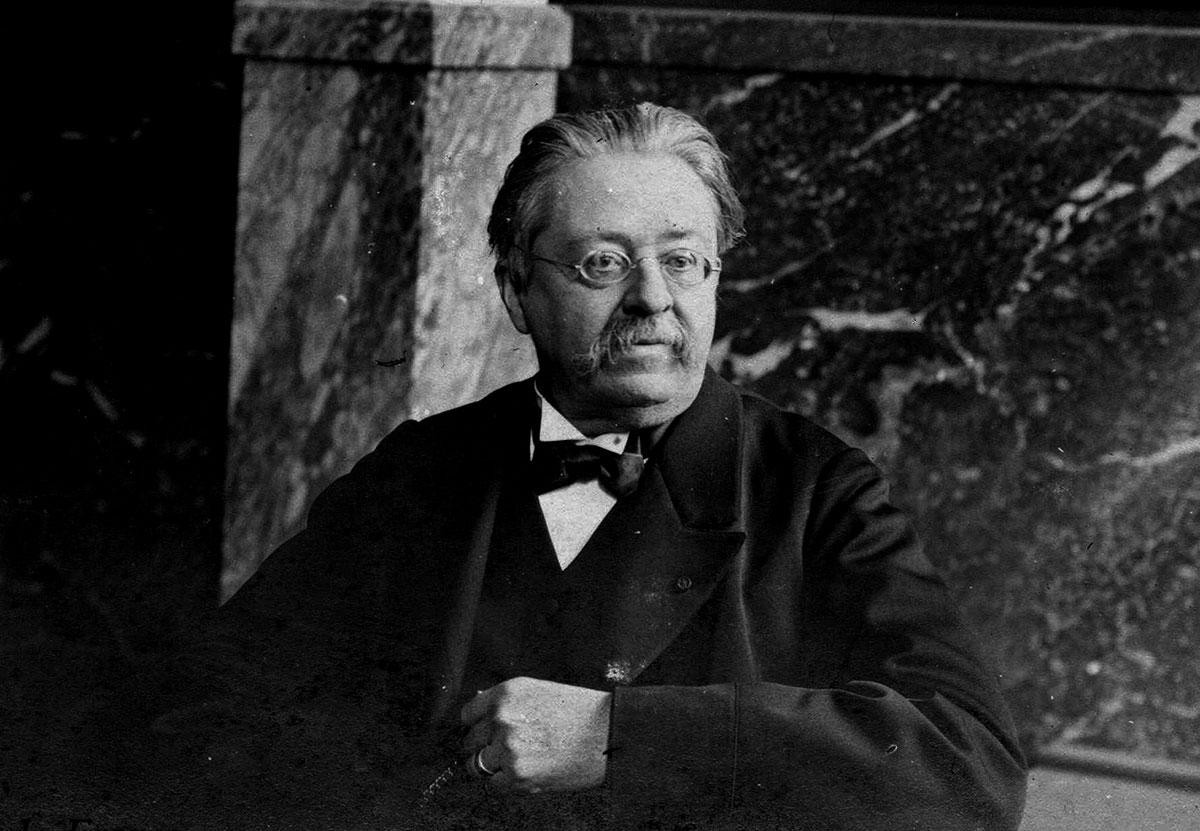
Non-series publications
The EPHE-PSL also publishes works outside its established series, exploring its long academic and scientific history through portraits of its scholars and its links with other institutions.
Memorabilia I. Notices nécrologiques de la section des Sciences historiques et philologiques
Texts presented and annotated by Patrick Henriet
Editor: Justine Parmentier
EPHE–PSL, Paris, 2019
ISBN: 978-2-909-03648-9
Distribution: Librairie Droz
Like other institutions, such as the Collège de France and the various academies that make up the Institute, the EPHE-PSL has been very active in the obituary genre. These works sometimes repeat and amplify the text of the eulogies delivered most often at section assemblies, but also, in the past, at funerals or even for the inauguration of a monument. These laudatory speeches were, and still are, generally due to the successor of the deceased. This book brings together all the speeches made by faculty members in the Historical and Philological Sciences section. Annotations and indexes make it a real working tool. From the eulogy of Léon Renier († 1885), first president of the IVth section, to 2019, there are some 150 notices, including those of Gaston Paris, Gabriel Monod, Ferdinand de Saussure, Michel Bréal, Gaston Maspero, Louis Duchesne, François Simiand, Sylvain Lévi, Antoine Meillet, Ferdinand Lot, Louis Renou, Émile Benveniste, André Chastel, Louis Robert, Bernard Frank, Mirko Grmek, Bruno Neveu, Maxime Rodinson, Claude Nicolet and Bernard Guenée, to name but a few. In reading these sometimes-lengthy texts, readers will embrace no less than a century and a half of research at the highest level in a wide range of fields, from linguistics to sinology, epigraphy, diplomacy and papyrology, all of which are part of history and philology.
Memorabilia II. Notices nécrologiques de la section des Sciences religieuses
Texts presented and annotated by Patrick Henriet
Editor: Justine Parmentier
EPHE–PSL, Paris, 2020
ISBN: 978-2-909-03649-6
Distribution: Librairie Droz
Founded in 1886 with the aim of secularizing the teaching of religion, the Vth section of the EPHE-PSL quickly acquired instruments similar to those of its elder sister, the IVth section, which were meant to enable it to assert its identity, mark its independence and reinforce its cohesion: a president, assemblies, directories and obituaries. Memorabilia II collects the obituaries of its scholars practically from its origins (the first honored director of studies was the theologian Auguste Sabatier, who died in 1901) to the year 2018. In ninety-one portraits (two of which are by senior civil servants and friends of the EPHE-PSL, Louis Liard and Charles Bayet), the entire history of French “religious studies” unfolds, with its ramifications in related fields such as sociology and anthropology. Many of the scholars featured in this book have left their mark on their era, if not their century: Sylvain Lévi, Marcel Granet, Alfred Loisy, Marcel Mauss, Lucien Febvre, Louis Massignon, Alexandre Koyré, Gabriel Le Bras, Henry Corbin, Étienne Gilson, Georges Dumézil, Claude Lévi-Strauss (present here as author), Pierre Hadot, and more. From India to China, Siberia to Africa, the whole world is represented. The two volumes of Memorabilia provide an unrivalled panorama of the historical, philological, linguistic and now religious sciences.
Ma grande église et ma petite chapelle. 150 ans d’affinités électives entre le Collège de France et l’École pratique des hautes études.
Edited by Jean-Luc Fournet
Editors: Justine Parmentier (EPHE), Fanny Pauthier (Collège de France)
Collège de France, EPHE-PSL, Paris, 2020
ISBN: 9782722605480 (print version)
ISBN: 9782722605497 (digital version)
The digital version of this book is published as part of the “Passage des disciplines” series in freemium open access on OpenEdition Books
“My big church and my little chapel”: that's how Gaston Paris, the illustrious medievalist, described the Collège de France and the EPHE in 1894, the two institutions between which he divided his teaching. Founded respectively in 1530 and 1868, these two institutions of “science in the making” (Ernest Renan) have maintained almost symbiotic links: many teachers have passed from one to the other or worked simultaneously in both. Being the result of a symposium organized at the Collège de France on the occasion of the EPHE's centenary, it is these elective affinities that this book seeks to highlight through studies on the history of the two institutions, reviews by discipline (comparative grammar, history of religions, anthropology, sinology, Assyriology, Egyptology) and portraits of a number of outstanding personalities (Ernest Renan, Gaston Paris, Abel Lefranc, Sylvain Lévi, Louis Robert).
Beyond the anecdotal, the prosopographical or the coincidence of institutional crossovers, these studies provide an opportunity to reflect on the joint role of these two establishments in the history of knowledge.
Presentation of the book on OpenEdition Books